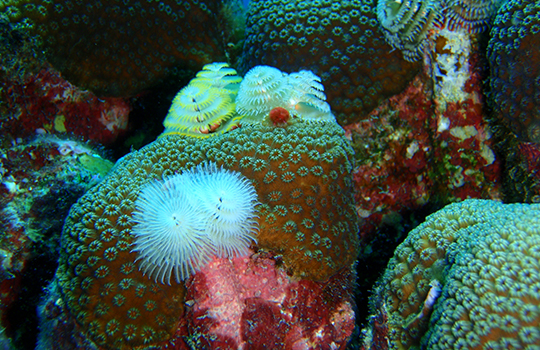Corals have a set range of conditions that they need in order to survive. When it comes down to it, coral reefs are actually fairly finicky organisms—if these conditions aren’t met, corals can become stressed and diseased, and even die.
Clean Water
When polluted runoff and wastewater enter the marine environment, they carry chemicals, nutrients, and bacteria that can be harmful to coral reefs and spur the growth of algae that competes with corals for space. Most reef-building corals depend upon zooxanthellae (tiny little algae that grow inside of them) to photosynthesize and provide food. If the water becomes cloudy or murky, or if corals are covered in sediment, the sunlight can’t get to the zooxanthellae and the corals lose that important food source.
Warm Water
Though it varies largely on geography and the species of coral, many reef-building corals have a narrow temperature range in which they can thrive. Most hard corals prefer water temperatures that range between 73° and 84° Fahrenheit (23° and 29° Celsius), though some can tolerate temperatures as low as 68° F (20° C) and as high as 90° F (32° C). That said, research has shown that corals can adapt to moderate rising ocean temperatures if they are healthy.
Healthy Wildlife Populations
Many coral reef animals play important roles within coral reef ecosystems. For example, herbivores like parrotfish and sea turtles graze on algae and help keep algae populations under control. When herbivore populations decline, coral reefs can quickly become overtaken with algae.
